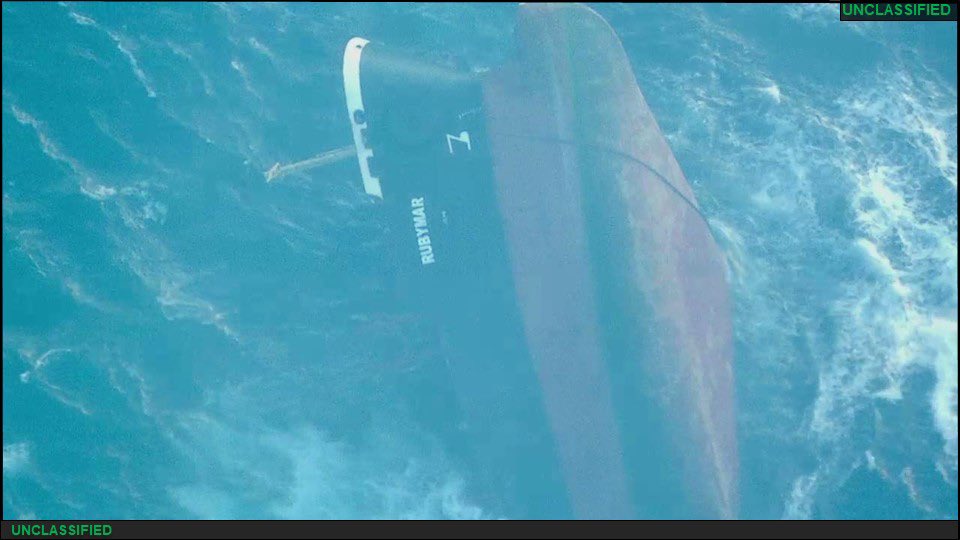In the early hours of March 2, the MV Rubymar, a British-owned bulk carrier flying a Belize flag, succumbed to damages and sank in the Red Sea. The vessel had been critically compromised since February 18, when it was targeted by two anti-ship ballistic missiles launched by the Iran-backed Houthi militia from Yemen.
The United States military’s Central Command has expressed concerns over the environmental repercussions of the sinking. The MV Rubymar was transporting approximately 21,000 metric tons of ammonium phosphate sulfate fertilizer. The chemical substance, now at risk of dispersing into the Red Sea, could have devastating impacts on the marine ecosystem, including the resilient coral reefs that are of significant ecological importance. Prior to its sinking, the vessel had already created an 18-mile oil slick, exacerbating the potential for environmental disaster.
The sinking also introduces a subsurface impact risk to other vessels navigating through this busy international shipping corridor. The Red Sea is a critical route for cargo shipments between Europe and Asia, and the presence of submerged hazards could pose navigational threats to a wide range of commercial and military shipping activities.
Following the attack, the MV Rubymar’s crew, comprising individuals from Syria, Egypt, India, and the Philippines, were safely evacuated to Djibouti by a vessel operated by a French shipping company.
Expanded Coverage:






